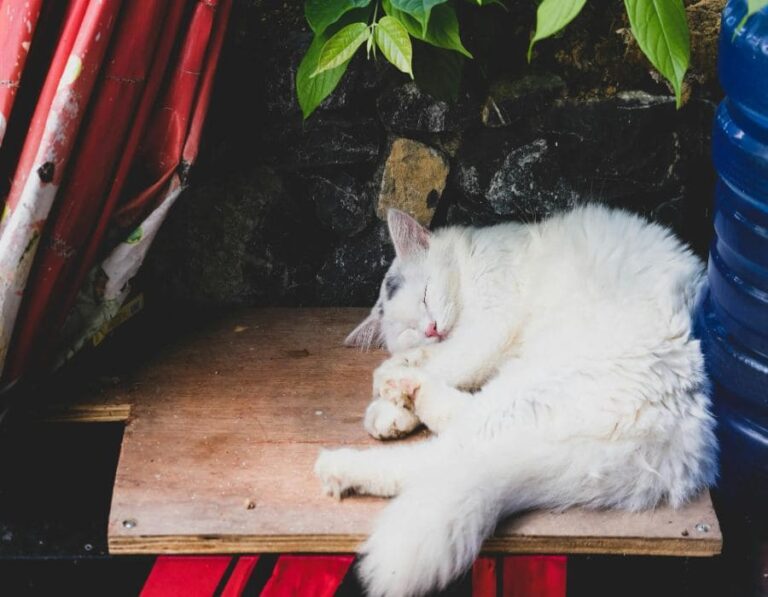10 Essential Foods to Include in Your Rabbit’s Diet
A balanced diet is essential for keeping your rabbit healthy, happy, and full of energy. Rabbits have unique dietary needs that cater to their sensitive digestive systems and natural eating habits. Feeding them the right combination of foods ensures they receive the nutrients they need to thrive.
Here are 10 essential items to include in your rabbit’s diet to keep them in optimal health.
1. Fresh Hay
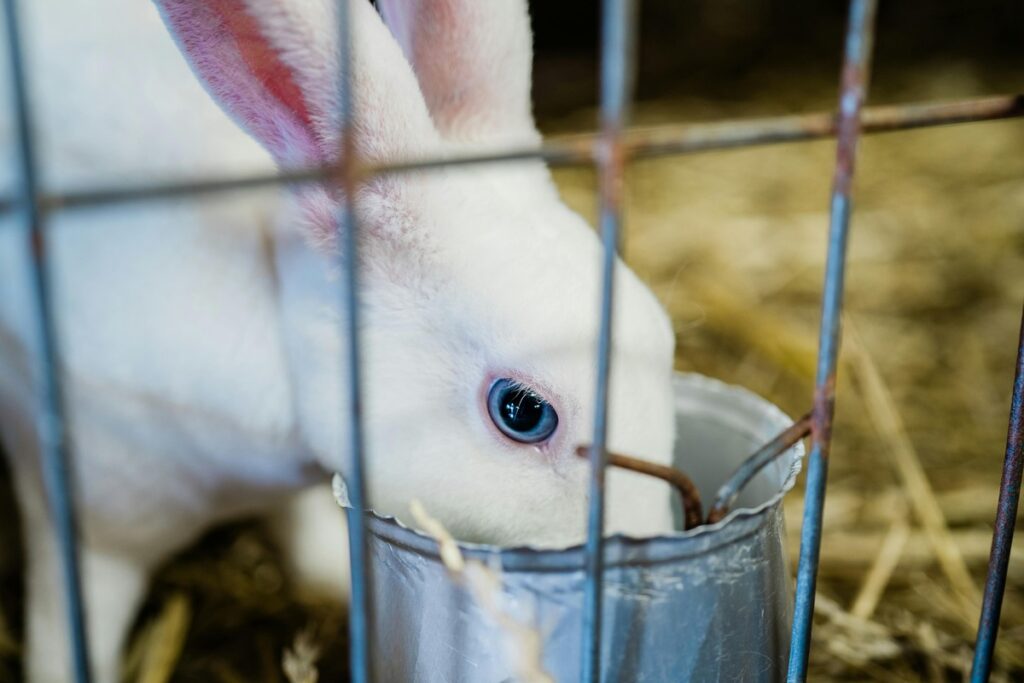
Hay is the cornerstone of a rabbit’s diet, providing fiber for proper digestion and preventing dental issues by wearing down their teeth. Offer unlimited access to fresh grass hay, such as Timothy, oat, or orchard grass. Alfalfa hay can be given to young rabbits but should be limited for adults due to its high calcium content.
2. High-Quality Pellets
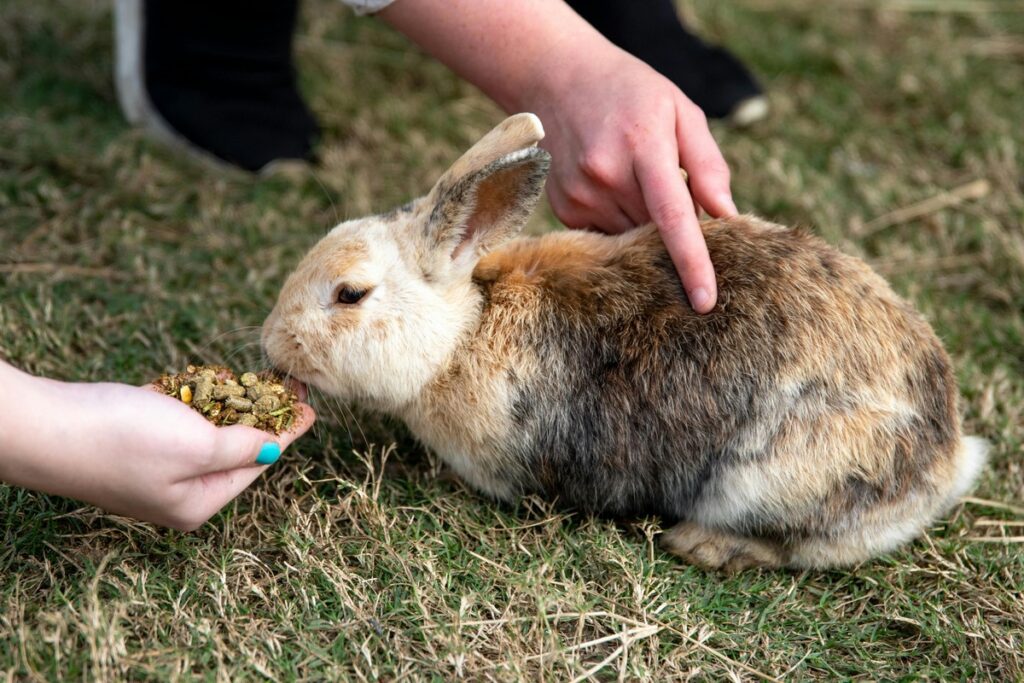
Pellets are a concentrated source of nutrients and should complement a rabbit’s hay intake. Choose high-quality pellets specifically designed for rabbits, free of added sugars or fillers. Feed in moderation—about 1/4 to 1/2 cup daily for an average adult rabbit—to avoid overfeeding.
3. Fresh Vegetables
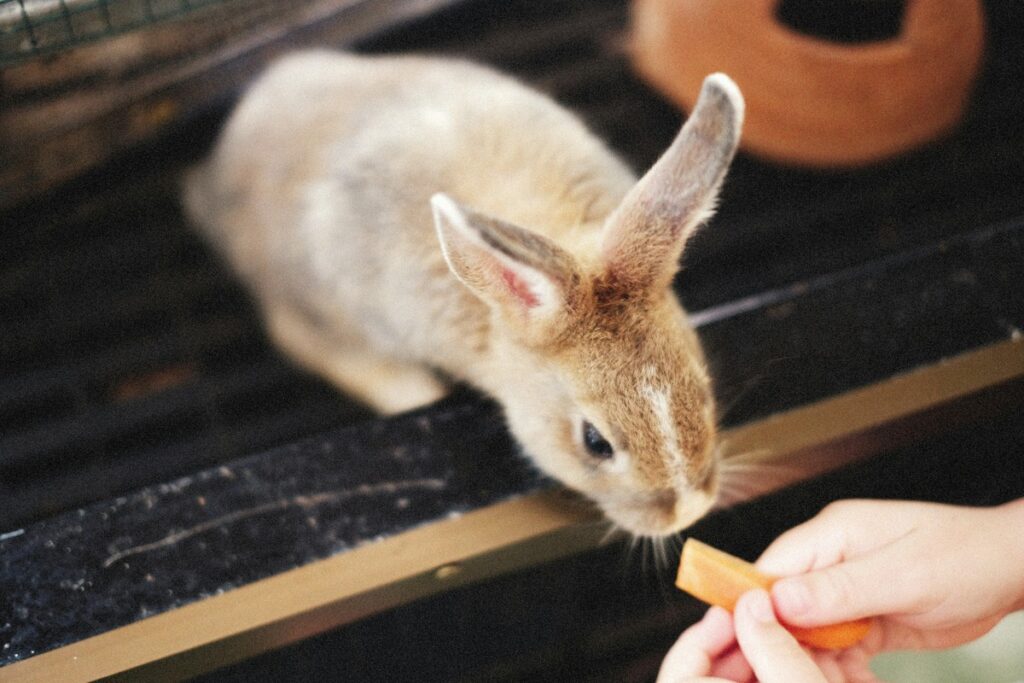
Leafy greens are a vital part of your rabbit’s diet, offering essential vitamins and minerals. Include a variety of options such as romaine lettuce, cilantro, parsley, and kale. Introduce new vegetables gradually to monitor for any digestive issues. Avoid iceberg lettuce, which lacks nutritional value.
4. Fresh Herbs

Herbs like basil, mint, dill, and thyme add variety to your rabbit’s meals while providing additional nutrients. These aromatic greens are generally safe and can make mealtime more enjoyable for your bunny.
5. Root Vegetables (In Moderation)
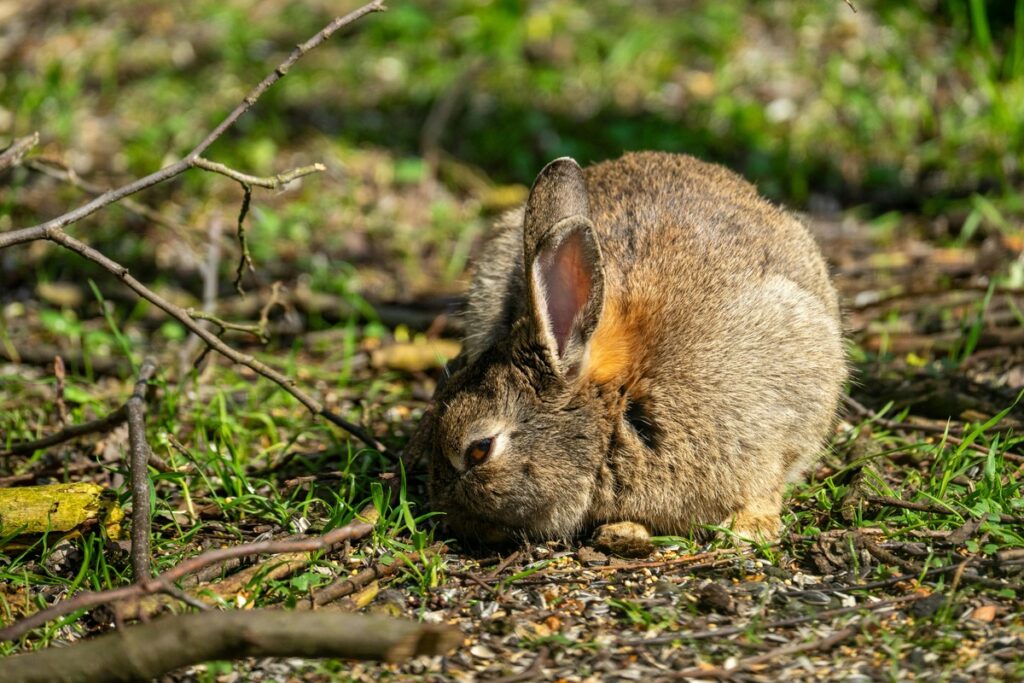
Carrots and other root vegetables like parsnips can be given as occasional treats. While they’re rich in vitamins, their high sugar content means they should only make up a small part of your rabbit’s diet.
6. Safe Fruits (Occasional Treats)
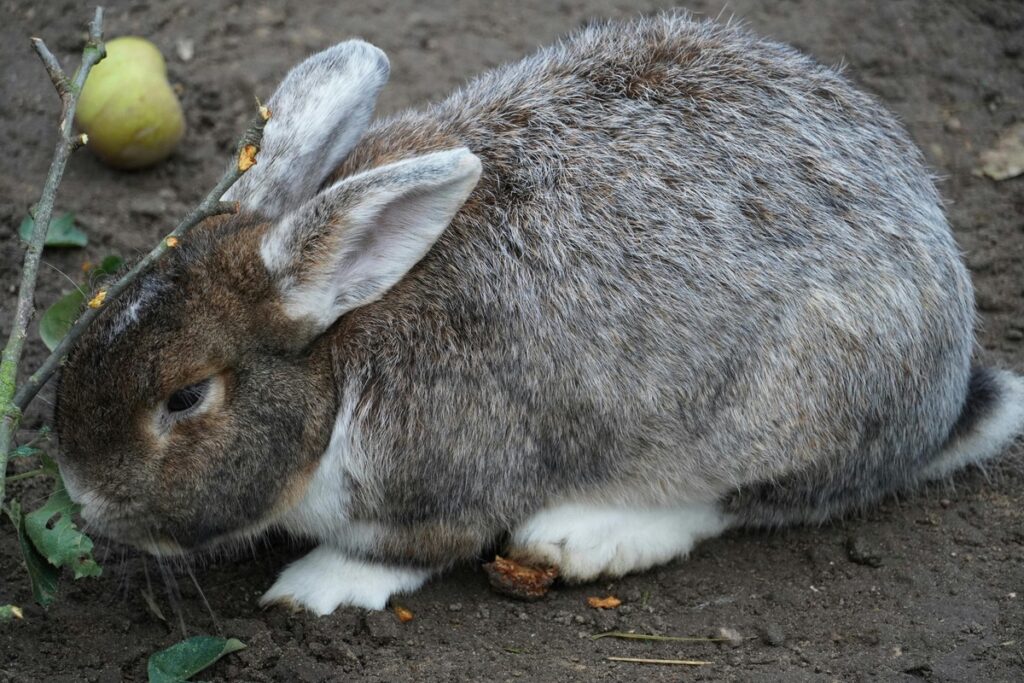
Rabbits enjoy sweet fruits like apples (without seeds), bananas, strawberries, and blueberries. Offer these as occasional treats in small portions to prevent weight gain or digestive upset. Stick to about 1-2 tablespoons of fruit per day.
7. Clean, Fresh Water
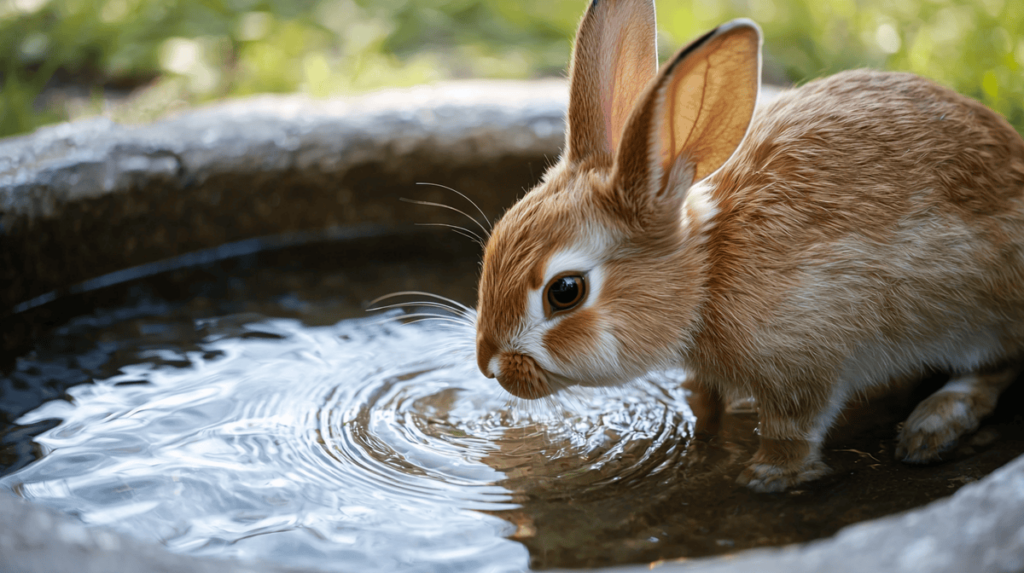
Access to fresh, clean water is essential for your rabbit’s health. Provide water in a bowl or bottle, ensuring it’s changed daily. Proper hydration aids digestion and prevents urinary issues.
8. Twigs and Branches
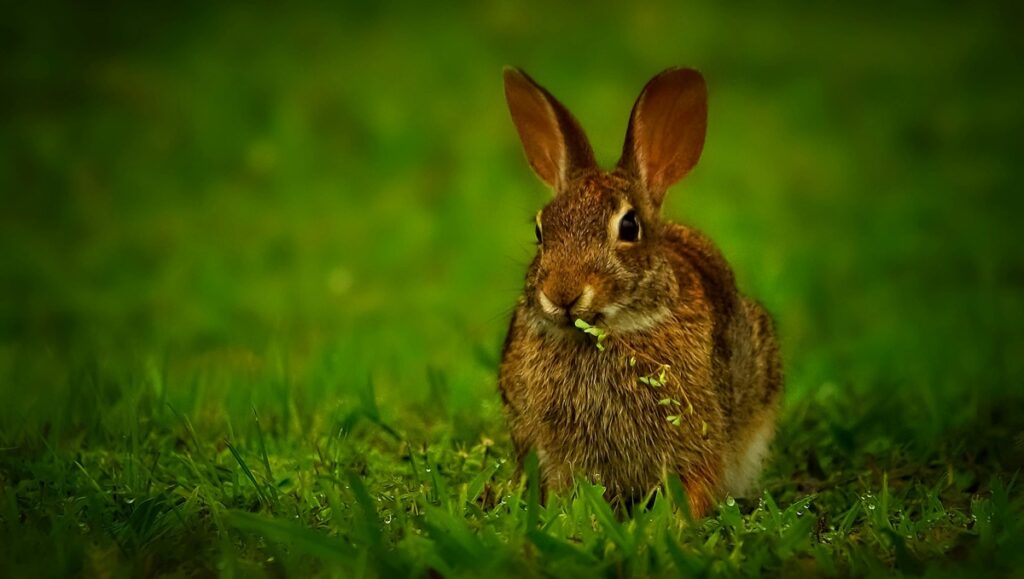
Chewing is a natural behavior for rabbits, and offering safe, untreated twigs and branches helps maintain healthy teeth. Options like apple, willow, or aspen wood are excellent choices. Avoid branches from toxic trees like cherry, peach, or apricot.
9. Limited Grains and Seeds
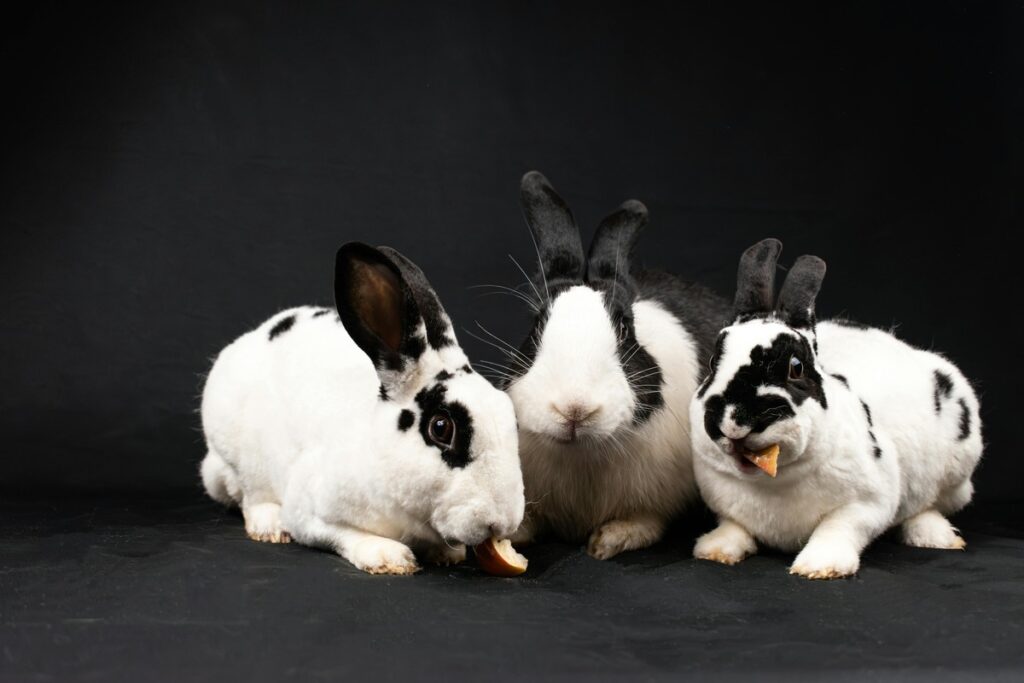
While rabbits enjoy grains like oats or barley as occasional treats, these should be offered sparingly. High-fat seeds and grains can lead to weight gain and digestive issues if overfed.
10. Fiber-Rich Forage Plants
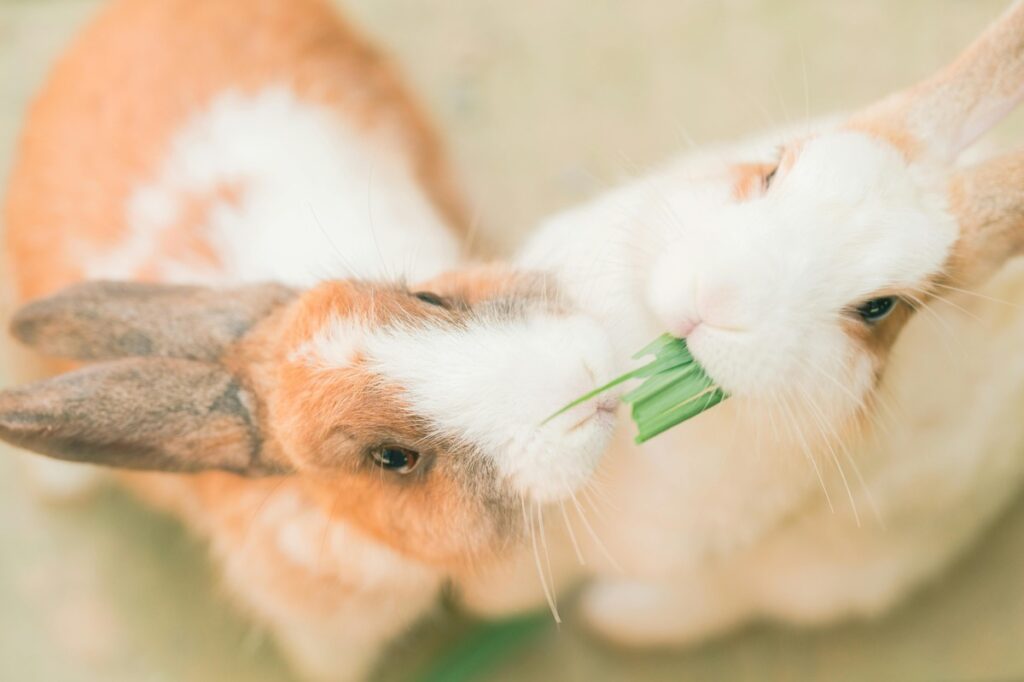
Introduce your rabbit to fiber-rich forage like clover, dandelion greens, or plantain leaves. These are excellent for digestion and mimic their natural diet. Ensure any forage is free from pesticides or chemicals before feeding.
A well-rounded diet is key to ensuring your rabbit stays healthy and happy. By providing a mix of fresh hay, vegetables, and occasional treats, you can meet their nutritional needs while keeping mealtime exciting. Always consult your veterinarian if you’re unsure about adding a new food to your rabbit’s diet, and monitor your bunny for any signs of discomfort or changes in behavior. A balanced diet means a longer, healthier life for your furry friend!


